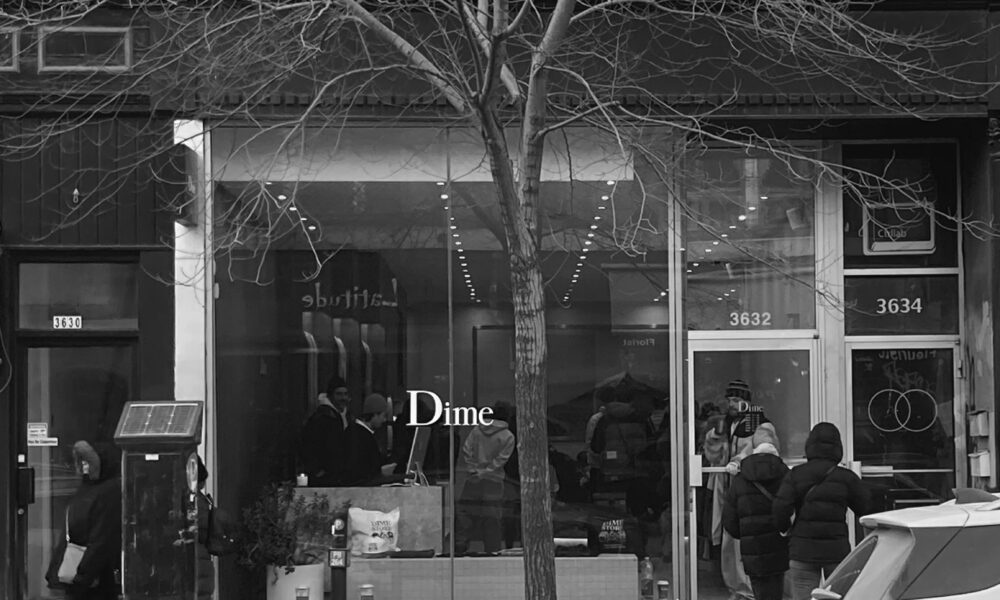Consumer culture is the bane of our existence -Kiran
A Dime hoodie has become a ubiquitous cultural symbol on the McGill campus. The Montreal-based skate brand grows in popularity with each limited edition drop. Why do McGill students like Dime? Are they not just another company selling mass-produced, overpriced, undifferentiated clothing? Hoodies are a necessity for those braving Montreal winters, but the utility of Dime’s products is not what contributes to its trendiness. Wearing Dime clothing gives McGill students a feeling that will keep them much warmer than a hoodie: Social status.
Consumer goods fall into two categories, material and positional goods. Material goods address basic human needs. For a typical student, material goods include an apartment, groceries, a computer, and basic clothing. Conversely, positional goods extend social status to those who attain them. Positional goods carry a competitive premium: The more people who have the product, the less it is worth. Possessing such a good, like a Dime hoodie, is not about merely having one, but rather that you have one and others don’t. Positional goods are proxies for perceived social superiority.
Each Dime drop highlights the underlying problem with positional spending. Buying products because of the status they confer is futile. New purchases offer a status bump, but only temporarily. Inevitably, someone in your social group will get something newer and cooler, at which point you are left with two options: Either you engage in an consumption arms race, leaving you broke and owning an excessive amount of stuff you don’t even want, or you give in and embrace the fact that you can never have enough material things to make you happy.
There are certainly people who buy Dime products because they like the brand’s designs, quality, and ethos—but they are the minority. The hedonic treadmill of consumer culture is impossible to stop, but self-awareness is the first step towards getting off. Dime is simply cashing in on your thirst for clout, and as soon as McGill students realize this, they will find themselves with much bigger bank accounts and clothes that are authentic to them.
Positional spending is the solution to overconsumerism -Liliana
You would be hard pressed to find someone in the McGill bubble who does not agree—at least on the surface—that consumerism poses a major problem in our society. Everyday we are inundated with constant cries from companies attempting to convince us that they have what we need. As a result, cheap, mass-produced items have risen to allow people to buy whatever their heart desires. These products have pervaded the lives of millions of consumers. It takes just a couple clicks to find hours worth of videos proclaiming the virtue of Amazon dupes for Lululemon or sharing multi-part hauls from Shein worth hundreds of dollars. There are many theories about why overconsumption has everyone so thoroughly enamored, and while people have taken a variety of approaches to addressing the issue—from minimalism to no-buy years—I’m here to present a different solution: Embrace positional spending.
Saving up to buy a luxury item—or positional good—used to be a rite of passage for many teens and young adults—spending weeks, or months, putting aside money to buy the new Jordans or the latest Tommy Hilfiger. Though these are a kind of status symbol, for many they were also a physical manifestation of personal success—bought after saving allowance or using your first paycheque from a job. The sense of long-term accomplishment that accompanies your first major purchase or designer good is infinitely more satisfying than the short-term gratification that comes with your third Shein haul of the month.
Dime sweaters are arguably the perfect positional good. Not only are they nicer than the average sweater, but they give off the vibe that every McGill student seeks—cool, effortless, and artsy. Dime’s globally renowned drops combined with their iconic Montreal collabs—notably with the Montreal Canadiens—are the perfect combination of local clout and universal swag.
No matter how much you care about the environment, it is indisputably difficult to stop your hyper-consumerism cold-turkey. Instead, rather than falling victim to the call of internet dupes, take the time to save up for the thing you really want: Become a positional spender.







